
The annual Research Week of the Library and Information Service of Stellenbosch University (SU) kicked off later than usual this year due to the Coronavirus pandemic. The original date of 27–31 July coinciding with the 2020 Olympic Games. But with Covid-19 everything changed, and we had to move Research Week to the new date of 24–28 August. Since plenty of time had been spent on planning and preparation, we decided to stick with the original theme of “Going for research gold in 2020”, even though the Olympics had been postponed.
This year’s Research Week was presented in an online format for the first time and we were excited to see what the reception of this format would be. We reached a wider audience, including participants from Medicine and Health Sciences, the USB and postgraduate students from all over the country. Registrations and participation far exceeded our expectations.
Research Week was launched on Monday 24 August, where Ms Ellen Tise welcomed everybody, with a special welcome to Professor Cloete and guest speaker Dr Balindiwe Sishi. Ms Tise reminded all that the aim of a research week is to inspire and equip Masters, PhD and emerging researchers with practical knowledge of research essentials. Professor Cloete commended the library for still managing to hold the event online. He pointed out that this is a reflection of a “world class library and information service with world class facilities for researchers”.
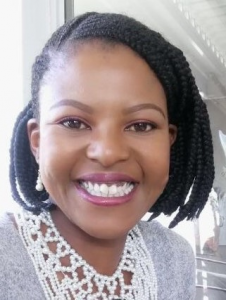 Dr Sishi’s presentation, titled The journey through my eyes, started off by reminding all that Research Week falls within Women’s month. She then relayed her journey towards attaining a PhD, which included the challenges of finishing her first degree on time, death of close family members, struggling to fund her postgraduate studies and numerous rejections to study for her favourite area, medicine. Dr Sishi stated that her struggles taught her the importance of having a plan B in life. It is always important to “do the best you can with what you have. Do not focus on the door that is closed but the one that is open”, she stated. Later, as a promising emerging researcher, Dr Sishi told of how she was honoured to be selected for a conference attended by a number of Nobel Laureates. Among her take home messages was that emerging researchers should always find themselves good mentors, collaborate, choose important and fascinating topics, and focus on achieving their goals. True to her promise, Dr Sishi offered some pointers to a “recipe for a Nobel Prize”. The recipe included the importance of collaboration, publishing, and producing many PhD’s as some of the ingredients for attaining a potential Nobel Prize.
Dr Sishi’s presentation, titled The journey through my eyes, started off by reminding all that Research Week falls within Women’s month. She then relayed her journey towards attaining a PhD, which included the challenges of finishing her first degree on time, death of close family members, struggling to fund her postgraduate studies and numerous rejections to study for her favourite area, medicine. Dr Sishi stated that her struggles taught her the importance of having a plan B in life. It is always important to “do the best you can with what you have. Do not focus on the door that is closed but the one that is open”, she stated. Later, as a promising emerging researcher, Dr Sishi told of how she was honoured to be selected for a conference attended by a number of Nobel Laureates. Among her take home messages was that emerging researchers should always find themselves good mentors, collaborate, choose important and fascinating topics, and focus on achieving their goals. True to her promise, Dr Sishi offered some pointers to a “recipe for a Nobel Prize”. The recipe included the importance of collaboration, publishing, and producing many PhD’s as some of the ingredients for attaining a potential Nobel Prize.
Presentations during the rest of Research Week skilled participants in conducting efficient literature and systematic reviews, and in making optimal use of some of our subscription databases. Practical sessions included how to use Mendeley, gaining and keeping momentum in academic writing, the use of Turnitin and SUNScholarData, as well as how to manage stress and time during the postgraduate journey.
Presenters from the library, as well as other SU support divisions had the opportunity to showcase the support services on offer and provided useful guidance to the participants.
Kirchner van Deventer and Siviwe Bangani
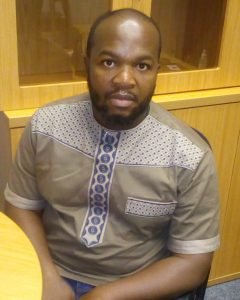 Mr Siviwe Bangani was appointed as Director: Research Services in the Library and Information Service, SU, from 1 April 2020. Siviwe previously worked at the North-West University Library and Information Service as a Manager: Information Services (Mafikeng Campus). Siviwe was the 2018 LIASA Librarian of the Year. At the time of joining SU, he was the chair-elect of the LIASA North-West Branch.
Mr Siviwe Bangani was appointed as Director: Research Services in the Library and Information Service, SU, from 1 April 2020. Siviwe previously worked at the North-West University Library and Information Service as a Manager: Information Services (Mafikeng Campus). Siviwe was the 2018 LIASA Librarian of the Year. At the time of joining SU, he was the chair-elect of the LIASA North-West Branch.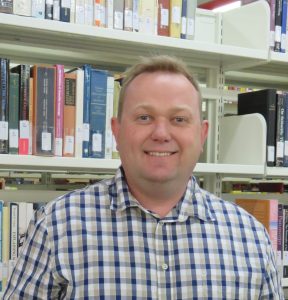 Mr Norman Hebler was appointed as Junior Librarian: Information Literacy and Learning Commons with effect from 1 December 2019. Norman is originally from Limpopo and studied at the University of Pretoria for his BA. After working in the UK, he came to Cape Town where he worked in the private sector. Thereafter, he joined Library IT at UCT Libraries where he worked for 10 years before joining SU.
Mr Norman Hebler was appointed as Junior Librarian: Information Literacy and Learning Commons with effect from 1 December 2019. Norman is originally from Limpopo and studied at the University of Pretoria for his BA. After working in the UK, he came to Cape Town where he worked in the private sector. Thereafter, he joined Library IT at UCT Libraries where he worked for 10 years before joining SU.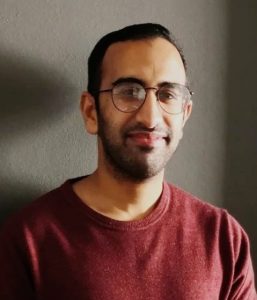 Mr Sarfaraz Mohamed was appointed as Linux Systems Administrator with effect from 1 July 2020. Sarfaraz previously worked in the ICT Division at SU in the Linux Team. He has worked on various projects from SUNLearn to security and vulnerability patching. His role is to manage the Linux infrastructure at the Library and to maintain and improve the overall Linux systems.
Mr Sarfaraz Mohamed was appointed as Linux Systems Administrator with effect from 1 July 2020. Sarfaraz previously worked in the ICT Division at SU in the Linux Team. He has worked on various projects from SUNLearn to security and vulnerability patching. His role is to manage the Linux infrastructure at the Library and to maintain and improve the overall Linux systems.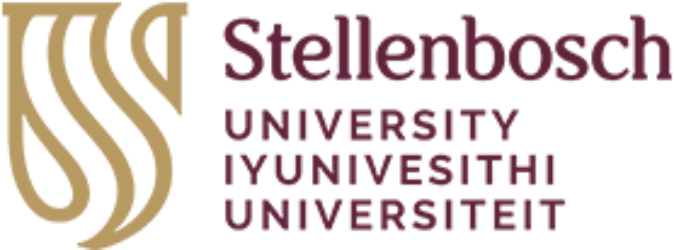
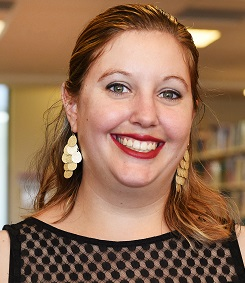 On Thursday 21 May, Elizabeth Moll-Willard (Faculty Librarian: AgriSciences) presented part of a webinar titled “Setting students up for success with science literacy”. Elizabeth spoke about creating a self-directed course for postgraduate students to equip themselves with essential research and information literacy skills.
On Thursday 21 May, Elizabeth Moll-Willard (Faculty Librarian: AgriSciences) presented part of a webinar titled “Setting students up for success with science literacy”. Elizabeth spoke about creating a self-directed course for postgraduate students to equip themselves with essential research and information literacy skills.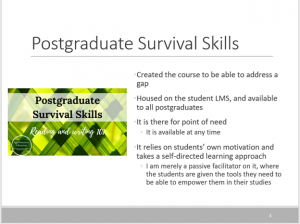 The course was created with Kathryn Wirth’s input (the Blended Learning Co-ordinator for the AgriSciences faculty) and placed on the SUNLearn postgraduate module. The point of need, standalone course covers the following areas:
The course was created with Kathryn Wirth’s input (the Blended Learning Co-ordinator for the AgriSciences faculty) and placed on the SUNLearn postgraduate module. The point of need, standalone course covers the following areas: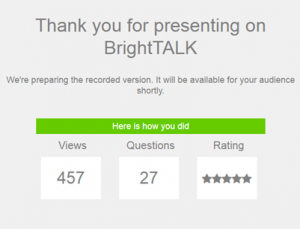 The webinar was well attended, with 457 participants, and the rating received from most participants was 5 stars. The presentation also resulted in a Library Connect blog article which can be viewed
The webinar was well attended, with 457 participants, and the rating received from most participants was 5 stars. The presentation also resulted in a Library Connect blog article which can be viewed 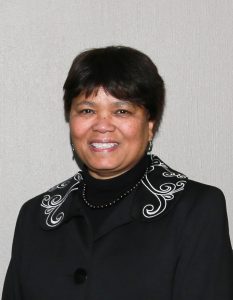 “Fake news will remain with us” – this is the view of Ms Ellen Tise, Senior Director of the Library and Information Service of Stellenbosch University (SU), who was sharing her perspective on the role of libraries in the fight against misinformation as part of a UN Library international panel.
“Fake news will remain with us” – this is the view of Ms Ellen Tise, Senior Director of the Library and Information Service of Stellenbosch University (SU), who was sharing her perspective on the role of libraries in the fight against misinformation as part of a UN Library international panel.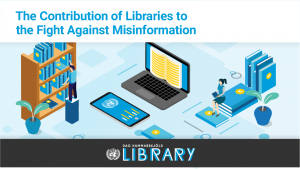 The role of libraries in the fight against fake news has been mainly around creating awareness, providing credible information resources, sensitising library clients to the harmful effects of fake news and empowering people to differentiate fact from fiction. Ms Tise was in the company of three other esteemed panelists from other countries.
The role of libraries in the fight against fake news has been mainly around creating awareness, providing credible information resources, sensitising library clients to the harmful effects of fake news and empowering people to differentiate fact from fiction. Ms Tise was in the company of three other esteemed panelists from other countries.
 Dr Sishi’s presentation, titled The journey through my eyes, started off by reminding all that Research Week falls within Women’s month. She then relayed her journey towards attaining a PhD, which included the challenges of finishing her first degree on time, death of close family members, struggling to fund her postgraduate studies and numerous rejections to study for her favourite area, medicine. Dr Sishi stated that her struggles taught her the importance of having a plan B in life. It is always important to “do the best you can with what you have. Do not focus on the door that is closed but the one that is open”, she stated. Later, as a promising emerging researcher, Dr Sishi told of how she was honoured to be selected for a conference attended by a number of Nobel Laureates. Among her take home messages was that emerging researchers should always find themselves good mentors, collaborate, choose important and fascinating topics, and focus on achieving their goals. True to her promise, Dr Sishi offered some pointers to a “recipe for a Nobel Prize”. The recipe included the importance of collaboration, publishing, and producing many PhD’s as some of the ingredients for attaining a potential Nobel Prize.
Dr Sishi’s presentation, titled The journey through my eyes, started off by reminding all that Research Week falls within Women’s month. She then relayed her journey towards attaining a PhD, which included the challenges of finishing her first degree on time, death of close family members, struggling to fund her postgraduate studies and numerous rejections to study for her favourite area, medicine. Dr Sishi stated that her struggles taught her the importance of having a plan B in life. It is always important to “do the best you can with what you have. Do not focus on the door that is closed but the one that is open”, she stated. Later, as a promising emerging researcher, Dr Sishi told of how she was honoured to be selected for a conference attended by a number of Nobel Laureates. Among her take home messages was that emerging researchers should always find themselves good mentors, collaborate, choose important and fascinating topics, and focus on achieving their goals. True to her promise, Dr Sishi offered some pointers to a “recipe for a Nobel Prize”. The recipe included the importance of collaboration, publishing, and producing many PhD’s as some of the ingredients for attaining a potential Nobel Prize.